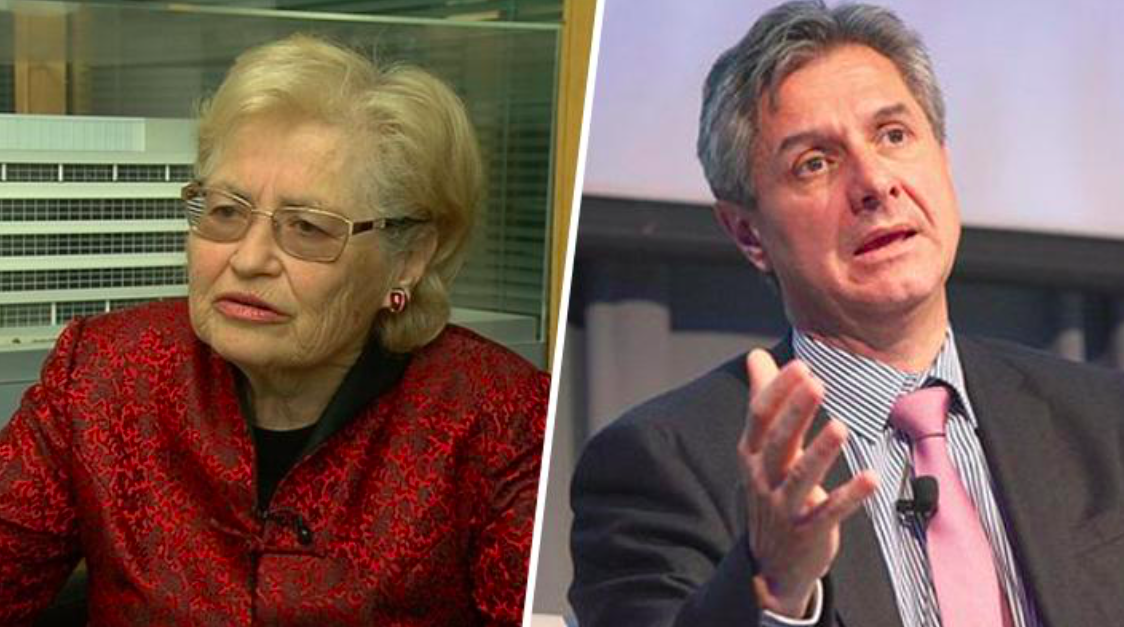RIO DE JANEIRO, BRAZIL – In the framework of Chile Day, an event that seeks to promote the Chilean capital market at a global level and which is being held in London, the two presidential candidates that will face each other in the second round showed the adjustments they are making to their campaign programs.
They have even backtracked on some of their initial positions to broaden their electoral scope, pushed by the reality of the economy and fiscal weakness.
This set of positions can be seen in the statements made by economists Stephany Griffith-Jones, economic advisor to left-wing candidate Gabriel Boric, and José Luis Daza, economic spokesperson for right-wing candidate José Antonio Kast, in a debate led by Financial Times Latin America editor Michael Stott.
Read also: Check out our coverage on Chile
TWO EXAMPLES
Boric’s representative admitted that a universal monthly pension of CLP 250,000 (US$298) “is a minimum for a decent life, but if there are no resources, perhaps it will have to be adjusted” so that with the new calculations, it would be around CLP 225,000.
Kast’s delegate relativized the idea of retiring 30,000 civil servants and reducing the number of ministries: “That had been said before the election, but it was already announced that we would make corrections,” which will point to a “reengineering of the state apparatus”.

They did agree to reject a new withdrawal from the AFPs. “The politicians are the ones who have to decide […], but I would advise against a fourth withdrawal,” said Griffith-Jones.
Daza criticized that on this issue, Boric was going against the opinion of his technical advisors and warned that a new withdrawal would affect the government’s financing, leading it to greater dependence on the global market and “argentinizing” its financial policy.
STATE VERSUS MARKET?
Invited to comment on the pillars for Chile to break out of the middle-income country trap and move towards development (something that only South Korea has achieved), Griffith-Jones bet on two areas. On the one hand, developing more research and innovation to add value to exported natural resources (such as copper and lithium, among others); on the other, moving towards a “green economy”.
“How can this be done? With public-private initiatives and with national and foreign funds, because the resources required are vast,” she said. She added that Boric does not like the discussion of opposing the role of the State and the private sector because synergies between both sectors are required.
She also highlighted the need to create new industries. She emphasized Chile’s growing entrepreneurial dynamism, with startups and ‘unicorns’ [companies worth more than US$1 billion]: “This needs to be expanded and encouraged.”
For Daza, the critical thing is for the markets to decide what to produce. “In Chile today, the State has asphyxiated the private sector, the economy and private investment are at zero. (…) We believe in eliminating the obstacles that exist so that ‘bottlenecks’ can be broken and we can start to grow,” he said.
In his opinion, Chile has comparative advantages in areas that go beyond natural resources. Still, to strengthen them, it is essential to make the labor market more flexible, simplify the tax structure and develop infrastructure. This would help Chile become a service center for the entire region and a financial platform.
“The financial sector is being destroyed by withdrawals. What we need to grow is for the market to help determine which are the areas where Chile is going to be the ‘tiger’ of the future again,” he said.
THE TAX BATTLE RAISE
Boric aims to raise the tax burden by eight points of GDP in six years. Kast is going in the opposite direction, reducing both the corporate income tax and VAT. However, the candidate himself has already said that this measure will only go forward if it is fiscally sustainable.
Daza remarked that “all of us in the team want to reduce taxes, but this is subject to fiscal solvency.” He admitted that this reduction is not foreseeable in the short term. He commented that what is being sought is “a corporate tax at lower rates to become more competitive” since today this tax (27% rate) is “out of line”, above the OECD average and also 21% in the US.
In addition, they will seek to reduce evasion and avoidance, together with a “massive simplification of the tax system”, which today “pushes people to informality”. And he passed a warning: “The most dynamic societies in the world have grown and increased salaries with tax burdens at 20% (where Chile is today) or even lower.”
Asked if Boric’s tax increase is realistic, his spokeswoman said that “some countries have achieved it, but it will be difficult given the outcome of the elections in Congress,” which will require negotiations with the center and the right. “The political feasibility is questioned [but] technically it is possible,” she assured.
She noted that the tax proposal includes a wealth tax. But it is not as crucial, in terms of revenue collection, as reducing tax evasion and avoidance, which “in Chile is equivalent to 7% of GDP when the OECD average is 3%, so there is room for people to pay what is due.”
Boric also seeks to increase the royalty to large mining companies. However, Griffith-Jones declined to comment on the initiative being discussed in the Senate since she has not studied it in detail.
“If there is a dynamic economy, good investment, high returns, I do not believe that taxes themselves are a disincentive, especially if the money is well spent,” she said about the reaction of investors to these measures.

